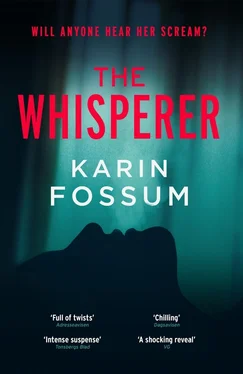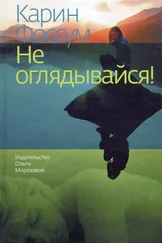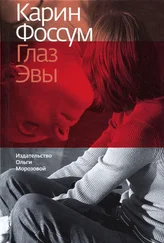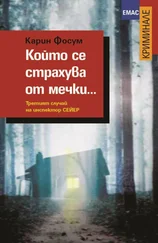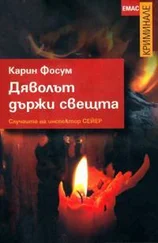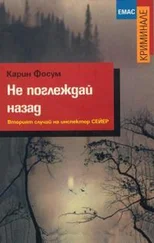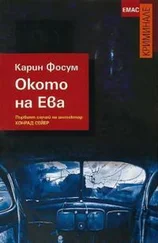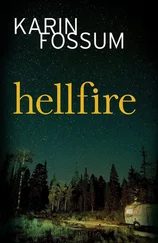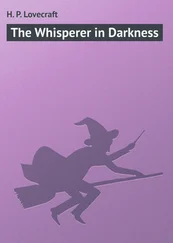Your son, Rikard. The Swindler. The Lost Son .
Ragna did not care that unknown hands had opened this letter from her son. That they had left greasy finger marks, smiled or yawned with boredom, or been indifferent to the whole thing. She read the letter with reverence and a pounding heart, she read it again and again. And one last time, as slowly as she could, word by word, sentence by sentence. She looked at every letter, she noted his stroke. In some places she felt a trembling, a tiny vibration in the loops and curls, or she noticed that the thickness of the ink varied; in some places the letters were lighter, as though he was weak and unsure, only to get bolder and darker when he felt strong and secure. But equally, it could be that he just had a bad pen, one that was about to run out. She sniffed the paper. There was definitely a scent there, the paper had been lying somewhere, on a shelf or in a drawer, and soaked up all the surrounding smells. Her son had held it and folded it a couple of times before carefully inserting it into the envelope. More than anything, though, it was the writing that touched her. She recognised it from his schoolwork, only it was even more elegant now. Not many had such fine handwriting, so even and beautiful. She was sure he had got that from Walther. The artist.
‘Mutti’. He had written ‘Mutti’! The word was so full of love and devotion. And every bit as beautiful as ‘darling’.
Her throat felt tight, but she did not cry. She was so full of happiness and joy that she felt she might lift off from the floor and float up to the ceiling and stay there, look at the world from a new perspective, from dizzying heights. And the guards would come in and not see her anywhere and think that she had escaped. She folded the letter and put it back in the envelope, sat there with it on her lap for a long time. Then she looked around the cell for a suitable place to keep it. There were not many options. There was a simple desk by the window with a single drawer, and she put the letter from her son in there. There was nothing else in the drawer. As soon as she closed it, she had to open it again — the letter was still there, she had not been dreaming. The letter was hers. A personal and private document no one could take away from her. And over time she would get more letters, she imagined a whole pile. Only when the initial rush of joy at hearing from her son and the swell of warm emotions had subsided, did she go and stand by the window and lift her face to the light, with her eyes closed. The light played on the thin skin of her eyelids, in a shifting pattern of red. She wanted to open herself up to something, she wanted to confess. She realised that she was standing there in her green Europris shop coat, which was probably covered in spots and stains. She had been so tired this autumn and had not coped in the way that she normally did. Had not looked after herself. Goodness, what if her son was to see her like this! He was sitting in his cell in nice, clean clothes, she was certain of that. She would ask him about it. She would write back to him, straight away. She would ask what he got to eat, how his cell was furnished, all twelve square metres. What he dreamt about at night, what he longed for, what he missed. She knew he did not long for his mother, and it never occurred to her to demand or ask for anything. She would thank him for every word, every line, every confidence, and would never, ever take it for granted. For the first time in years she felt a connection between them, an open line of communication. She was still standing by the window in the light. The gratitude she felt was so deep that she had to open her eyes and look at the sky outside, even if it hurt her eyes. Mustn’t ruin anything now, she thought, must keep the connection alive, tread carefully, whisper back to him.
His wife Elise had often commented on his eyes, she said that only small children had eyes like that. Life’s ups and downs, the big dramas, were recorded as spots and flecks on your eyes, and the gradual leaching of colour as you got older. But even though he was close to retirement age, and he had seen some of the most terrible things you could see in life, his irises were still as clear as ever, untainted by illness, fear and the ravages of time.
He looked at Ragna.
‘Someone had come into your house,’ he said. ‘He had stood and watched you while you slept, and left another threat on your bedside table to demonstrate how close he could come if he wanted, and that you had no chance of escape. How did you feel when you got home again, after you’d been to the police to report it?’
For the first time, Ragna was not wearing the Europris shop coat, she had thrown it off like a dry snakeskin, and thus changed colour. Underneath she had on a black sweater with a slight rib and buttons at the neck, which made her look even paler. But it was a very definite change for the better, she was like a new woman. He noticed the shine in her eyes; she had read the letter from her son.
‘My mind was blank,’ she remembered. ‘Nothing in the house had been touched. He didn’t want to steal anything. He wasn’t looking for valuables. He was looking for me.’
He gave her a kind smile.
‘And you are not valuable?’
‘Don’t be stupid,’ she whispered.
Sejer was pensive, and then scribbled something down.
‘But you are,’ she swiftly carried on. ‘You represent something valuable.’
‘I agree,’ he said calmly.
‘How can you be so sure?’ she asked.
‘Because the people around me tell me that I am. My family. My colleagues. It’s hard to feel valuable when you’re alone in a cave.’
She looked at him with something that resembled defiance.
‘I went to work,’ she told him. ‘I was with people every day. Customers and colleagues.’
He made another note.
‘But did you show yourself to them?’
‘There’s nothing to show,’ she said, sounding tired. ‘No beauty. No wisdom. No experience.’
‘Or,’ Sejer suggested, ‘are you just mean?’
She was so astonished by his question that she did not reply immediately.
‘I’m not mean,’ she mumbled eventually. ‘I don’t have anything to give.’
‘But you want to write back to your son?’ he said.
‘Oh yes,’ was her prompt response. ‘I’m going to answer. I’m going to write a thousand pages.’
‘So you do have something to show? Something to give a selected few?’
She grinned sheepishly, and was happier again.
‘Yes, a selected few. But that’s allowed, isn’t it? How did you get him to ring?’ she asked. ‘What did you say to him?’
‘The voice is a powerful tool,’ Sejer said. ‘And you’ve lost yours. I used mine for all it’s worth.’
‘And no one dares say no to you?’
‘Oh, they do, believe me.’
‘You’re always so friendly. Have you ever been nasty to anyone?’
‘All the time. Being nasty goes with the job.’
‘Tell me more,’ she said.
‘If you only knew how often I have to get people in for questioning in connection with a murder. How many times I’ve had to sit at this table and look a person in the eye, knowing that he or she is probably innocent, but I still have to ask all the questions. Where were you? What were you doing that night? And if I don’t find anything, I strike them from the list, obviously. But they still have to endure that for the rest of their lives — that they’ve been questioned in connection with a murder. And will be judged for it. I think that’s nasty.’
Neither of them said anything for some time, but they did smile at each other. Frank was the third living being in the room, and, somehow, he balanced them. The silence was not uncomfortable, however long it lasted, because they could hear him breathing, and the odd grunt and growl, which meant he was dreaming.
Читать дальше
